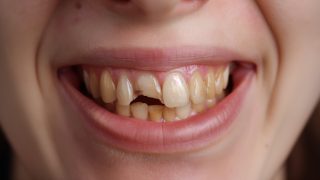Dental scaling is crucial for maintaining oral and dental health. It involves the removal of plaque that accumulates and hardens on the teeth, performed by a specialist dentist using special tools. Generally, teeth cleaning should be done every 6 months. However, this period may vary depending on the individual’s oral health condition and the severity of plaque buildup. Regular dentist visits and home oral care help reduce tooth decay and the risk of gum diseases. Specifically, dental floss and regular tooth brushing play a critical role in removing dental plaque and ensuring effective teeth cleaning.
What is a Dental Tartar?
Dental tartar forms as a result of the mineralization of plaque that accumulates and hardens inside the mouth over time. Plaque consists of food residues, bacteria, and the substances they secrete. Initially soft and sticky, plaque can be easily cleaned with regular and effective oral care. However, if not cleaned, the plaque eventually hardens and turns into dental tartar. Dental tartar can accumulate both below and above the gum line, leading to both aesthetic problems and gum diseases.
The formation of dental tartar varies from person to person, but it can be prevented with regular and correct tooth-brushing techniques. The use of dental floss and antiseptic mouthwashes also helps prevent plaque formation. However, once formed, dental tartar can only be removed with professional dental intervention. The teeth cleaning process, known in dentistry as “scaling,” is performed using special equipment. During this procedure, the tooth surfaces are meticulously cleaned, preventing gum diseases and maintaining oral health through effective teeth cleaning.
The Importance of Dental Cleaning
The importance of dental tartar cleaning stands out due to its impact on both aesthetic concerns and general oral and dental health. Dental tartar accumulates on the surfaces of teeth and beneath the gum line, potentially leading to inflammation that can cause gum disease and tooth loss over time. Therefore, regular teeth cleaning for tartar removal plays a critical role in maintaining oral health. Removing dental tartar helps the gums stay healthier and prevents issues such as gum recession, thus protecting the sensitive areas covering the tooth roots.
Additionally, teeth cleaning for tartar is effective in reducing bad breath. The surface of dental tartar is rough, allowing bacteria and food residues to adhere, which are among the main causes of bad breath. When dental tartar is professionally cleaned, the teeth achieve a smoother surface, thereby preventing bacterial buildup. Dental tartar cleaning also contributes to teeth appearing brighter and whiter, as tartar usually has a yellow or brown hue, and cleaning it reveals the teeth’s natural color more distinctly.
Adverse Effects of Dental Tartar on Oral Health
The negative effects of dental tartar can cause long-term damage to oral and dental health. Dental tartar is a hardened form of plaque that accumulates on the teeth and at the margins of the gums. This accumulation is one of the biggest triggers of gum diseases. Gum diseases initially occur with gingivitis and, if left untreated, can progress to a more serious stage called periodontitis. This can lead to damage to the gums, the bones that support the teeth, and ultimately the teeth themselves.
Another significant problem caused by tartar is gum recession. Gum recession exposes the root of the tooth, increasing tooth sensitivity and making it more prone to decay. Dental tartar can cause gaps to form between teeth and at the gum line, leading to the loosening of teeth and eventually tooth loss. From an aesthetic perspective, dental tartar usually has a yellow or brown tint, negatively affecting the natural color and appearance of the teeth.
Therefore, regular teeth cleaning, oral care, and dentist visits are of great importance to protect against the negative effects of tartar. Professional teeth cleaning is also very effective in preventing tartar accumulation and cleaning existing tartar. Thus, teeth cleaning helps maintain tooth and gum health and prevents negative effects.






